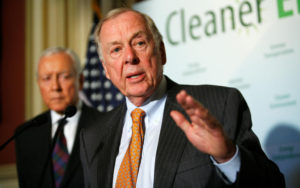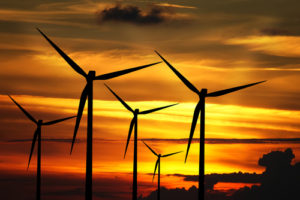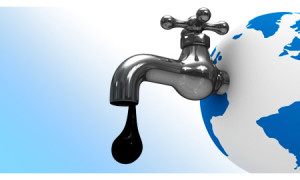
I’ve had the pleasure of visiting on three occasions with one of the smartest men in America.
T. Boone Pickens has earned a fortune in the oil and natural gas business. He knows fossil fuels better than, well, almost anyone.
The former Amarillo resident and current fossil fuel tycoon, though, misses the mark when he says that you can run government “like a business.”
Pickens has written an essay for Texas Monthly, in which he says in part: “In the late eighties and early nineties, I considered running for governor of Texas. Now a lot has changed since that time. But one thing that hasn’t changed is the need to make sure we have a government that works.
“’Can you really run a government like a business?’ I was asked at the time. ‘Sure you can,’ I replied. ‘It’s a business to start with. Taxpayers are like stockholders, and both are entitled to a full day’s work for a full day’s pay. For a dollar spent, taxpayers ought to receive a dollar back in value.’”
Pickens is as smart a businessman as anyone you’ll ever know.
But as another tycoon is learning, government is a much different animal than a business. That tycoon, Donald J. Trump — who Pickens supported wholeheartedly for president of the United States — is learning in real time that the founders established a checks and balances system for a good reason. It is to ensure that no one branch of government runs roughshod over the other two.
The crux of Pickens’ essay was to extol the need to make the United States energy independent. He’s right about that need. He’s also got a dog in that fight, given that he owns a whole lot of fossil fuel rights in the United States and stands to benefit tremendously from pumping these fuels out of the ground.
He misses another point, though. It is that we already have made huge strides toward that goal in the past eight years. The Obama administration sought to provide incentives for investment in alternative energy sources: wind, solar, hydropower, biofuels. The big spike in oil prices in recent years has prompted much more fossil fuel exploration in this country. Add to that the fuel efficiency standards mandated on automakers and you have a sort of perfect storm that weans us from foreign oil.
Back to my main point.
Business is business. Government, though, is another creature altogether. I get that Pickens desires a business-like approach to government. However, the principles one applies to running a business do not transfer straight into the act of politicking, legislating and the making of laws.
Business executives can make decisions that stick, with no questions asked. Politicians have a different platform on which they operate. They have voters to whom they must answer. They also have colleagues who might have different points of view, a differing world view. They are as wedded to their view of the world as the businessman or woman is wedded to whatever he or she believes.
The “business” of running a government requires a certain skill set that business executives need to learn. From what I’ve seen of the businessman/president, he hasn’t yet learned it.
Perhaps someone like Boone Pickens could figure it out. If only, as he said, he had less history behind him and more in front of him.








